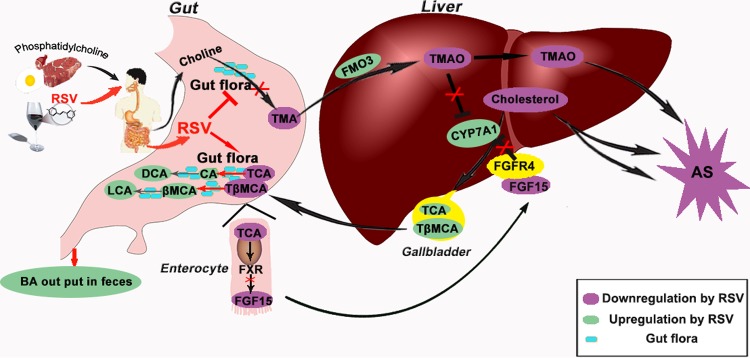FIG 10 .
A model depicting use of RSV to attenuate AS by targeting gut microbiota. Dietary RSV can alter the composition of gut flora. On the one hand, this can result in reduced levels of gut microbial TMA production, subsequently leading to decreased TMAO synthesis in the liver and, ultimately, to inhibition of AS. On the other hand, RSV increases BSH activity by gut microbiota remodeling, which promotes the generation of unconjugated BAs from conjugated BAs and enhances fecal BA loss. RSV-induced fecal BA loss leads to a decrease in ileal BA content, thereby inhibiting the ileal FXR-FGF15 axis, and then increases the expression levels of CYP7A1 in the liver, subsequently inducing hepatic BA neosynthesis which contributes to cholesterol homeostasis, finally attenuating AS. Red indicates the effect of RSV, purple indicates downregulation by RSV, green indicates upregulation by RSV, and blue indicates the gut flora. LCA, lithocholic acid.

